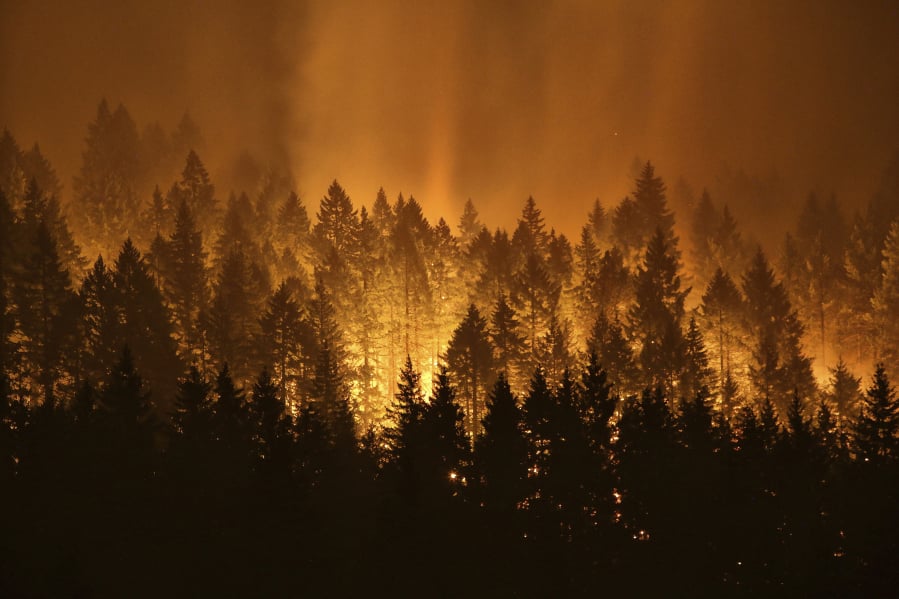You can read the headlines in Washington, Oregon and California. Even Florida.
This upcoming wildfire season looks like a particularly bad one.
Wildfires can not only kill people and animals and destroy structures, but they also harm the health of people even hundreds of miles away. That was noticeable in 2017, when the Eagle Creek Fire pumped smoke into Clark County and Portland.
Even in August, an intrusion of wildfire smoke affected air quality for a prolonged period, sending a number of people to the hospital.
On Aug. 20, Legacy Salmon Creek Medical Center had 18 respiratory patients affected by the air, and PeaceHealth Southwest Medical Center had 25 inpatients being treated for chronic obstructive pulmonary disease and asthma issues, likely tied to poor air quality.
Groups sensitive to poor air quality include children younger than 18 and adults older than 65, as well as those with heart and lung diseases, illnesses and colds, people who have had a stroke, pregnant women and those who smoke, according to a Washington Department of Health news release.
Symptoms from smoke exposure can range from minor to life-threatening and include watery or dry eyes, coughing or wheezing, throat and sinus irritation, phlegm, shortness of breath, headaches, irregular heartbeat and chest pain, according to the release. Serious symptoms require immediate medical attention.
“Wildfires are a problem for sensitive groups,” Clark County Public Health Officer Dr. Alan Melnick said. “The more wildfires we have, if it becomes more frequent, it will become more difficult particularly for the more vulnerable among us.”
Spreading the word
With that in mind, the state and county health departments are working on messaging and communication, closure guidance and air sensors around air quality, said Clark County Public Health Information officer Marissa Armstrong.
“The goal is to get everyone statewide on the same page, so that there’s more consistency in the information we’re putting out, consistency about when to take action and recommend closure in canceling events just to get everyone on the same page so that every county isn’t trying to come up with their own response plan,” Armstrong said.
Melnick said it’s important for sensitive people to stay indoors and away from strenuous, prolonged outdoor activity during unhealthy air quality days and set their air conditioning to circulate indoor air if they can.
He also said you shouldn’t burn candles, start a fire in the fireplace or vacuum on bad air days, and he cautioned that masks won’t help at all unless they’re the right kind and properly fitted by a professional. Regular dust and surgical masks don’t cut it.
Even if you aren’t in a sensitive group, Melnick said, it’s still best to limit outdoor activity on bad air days.
“None of this stuff is good for you,” he said.




